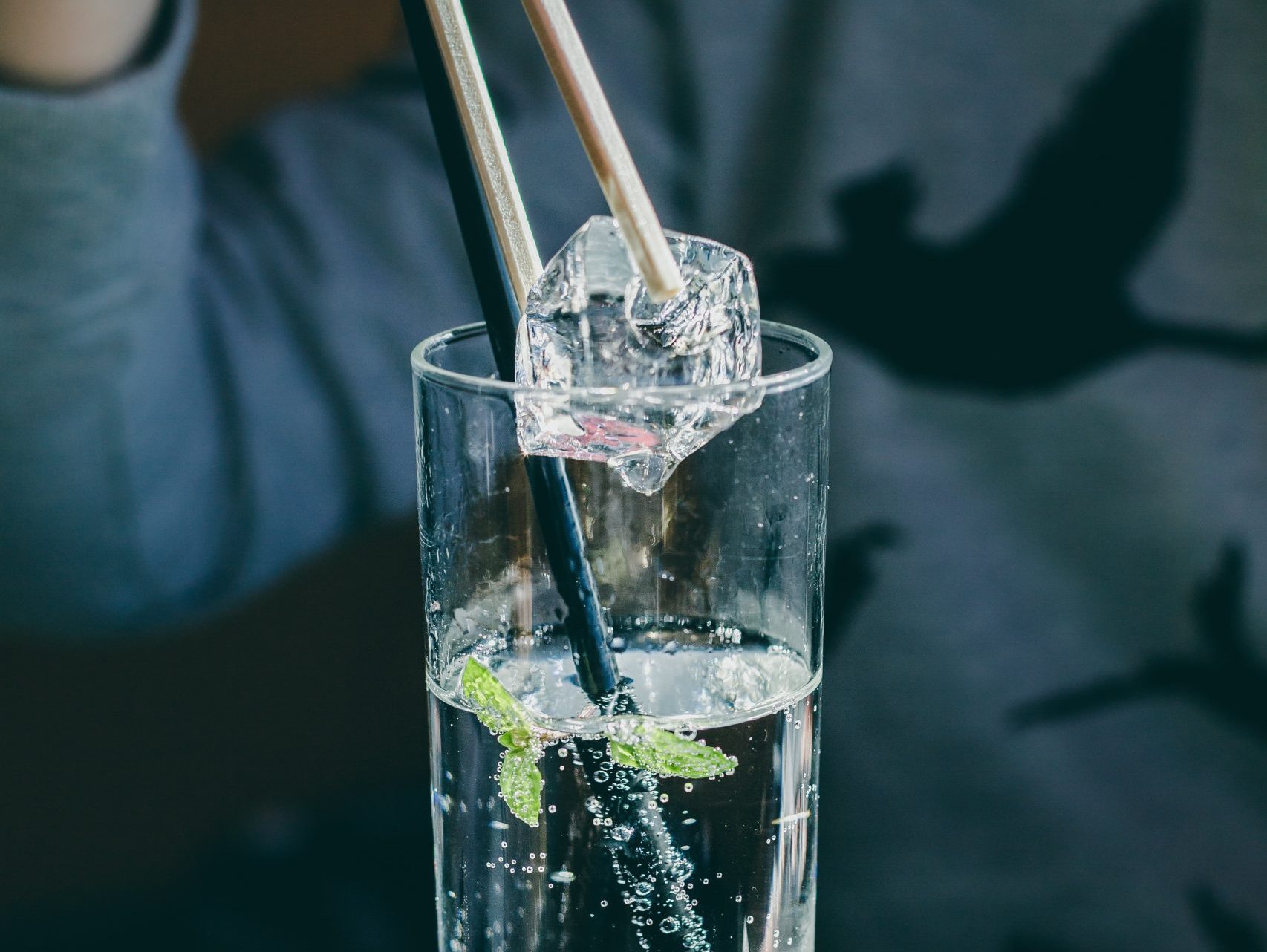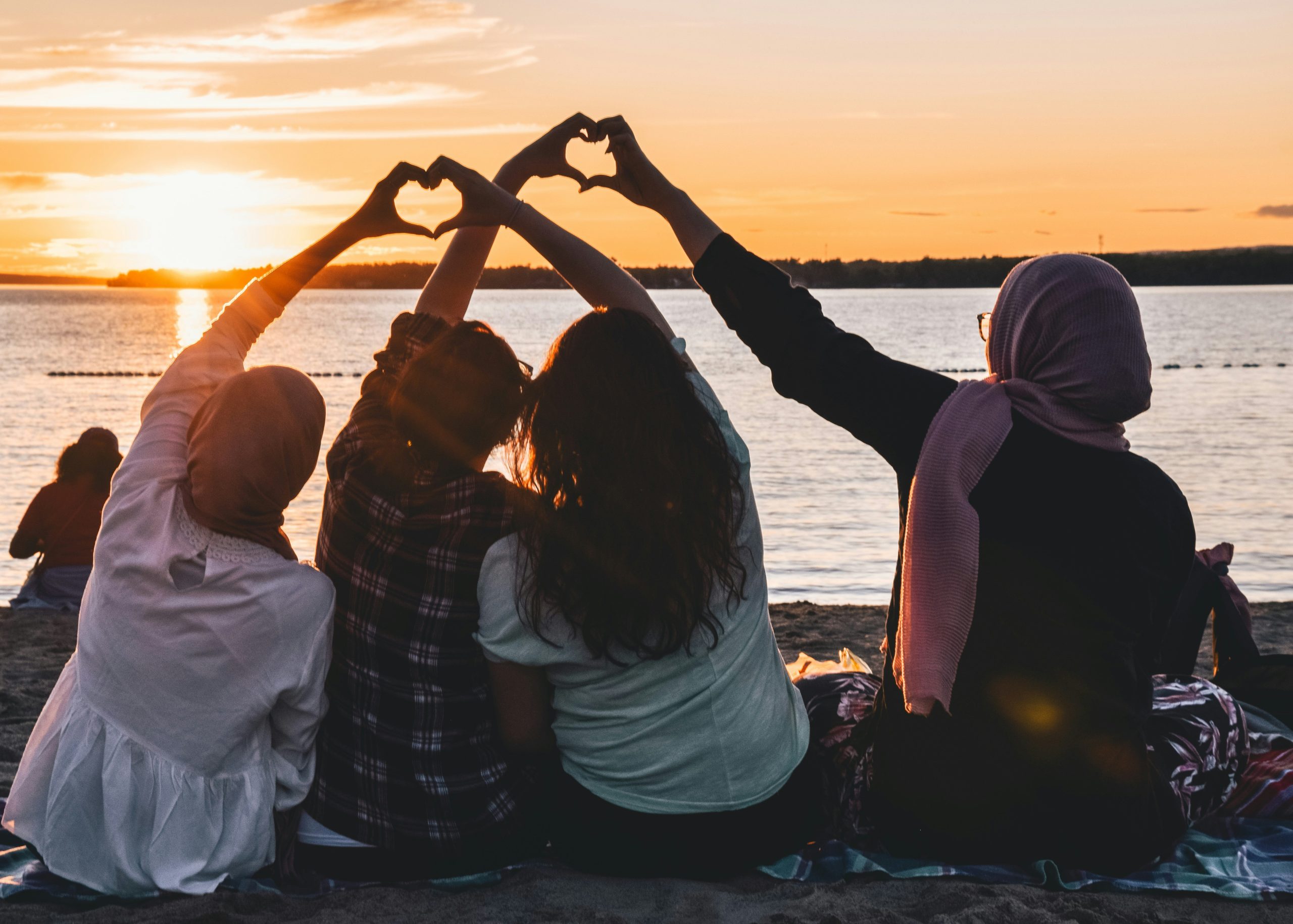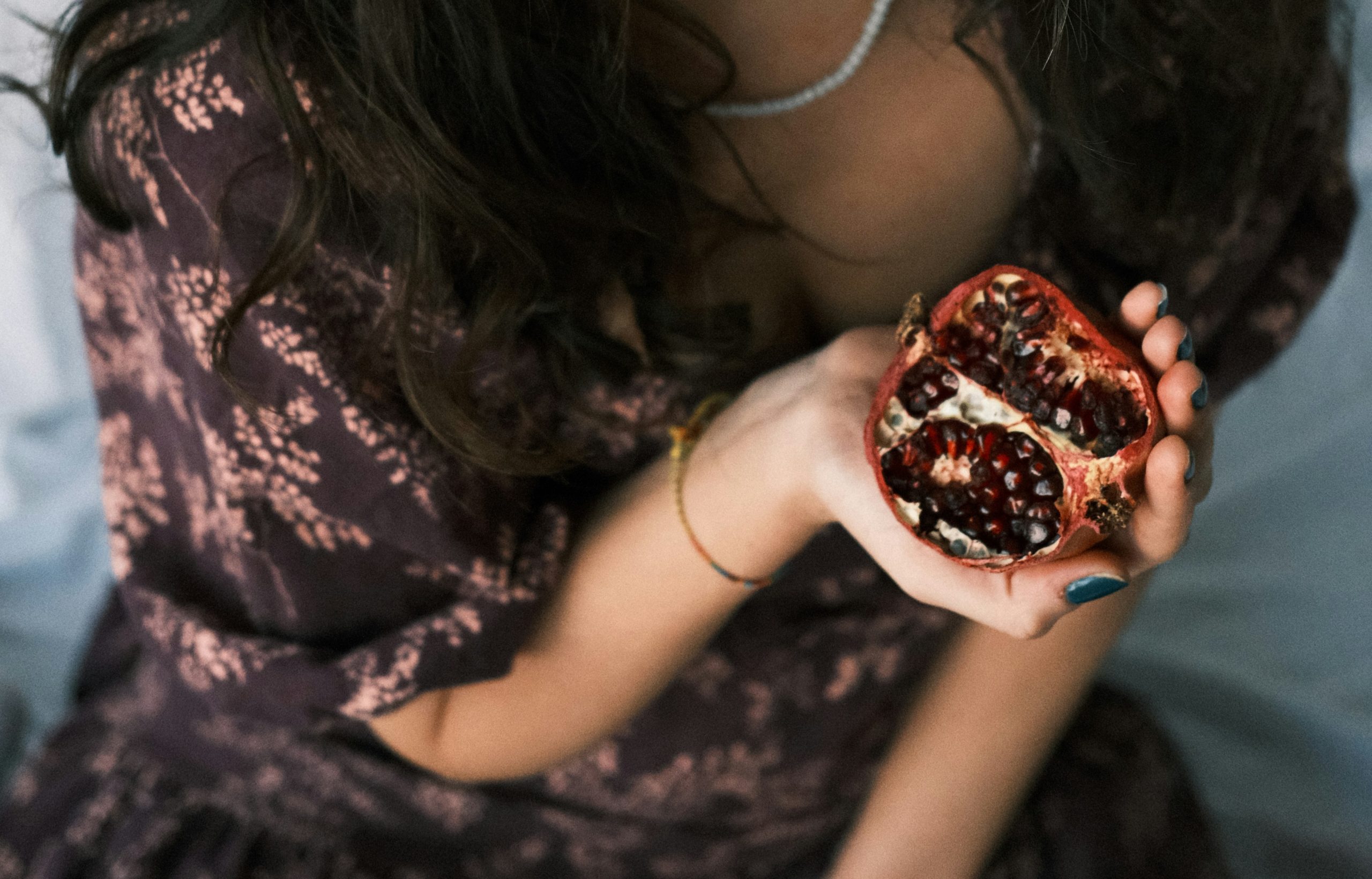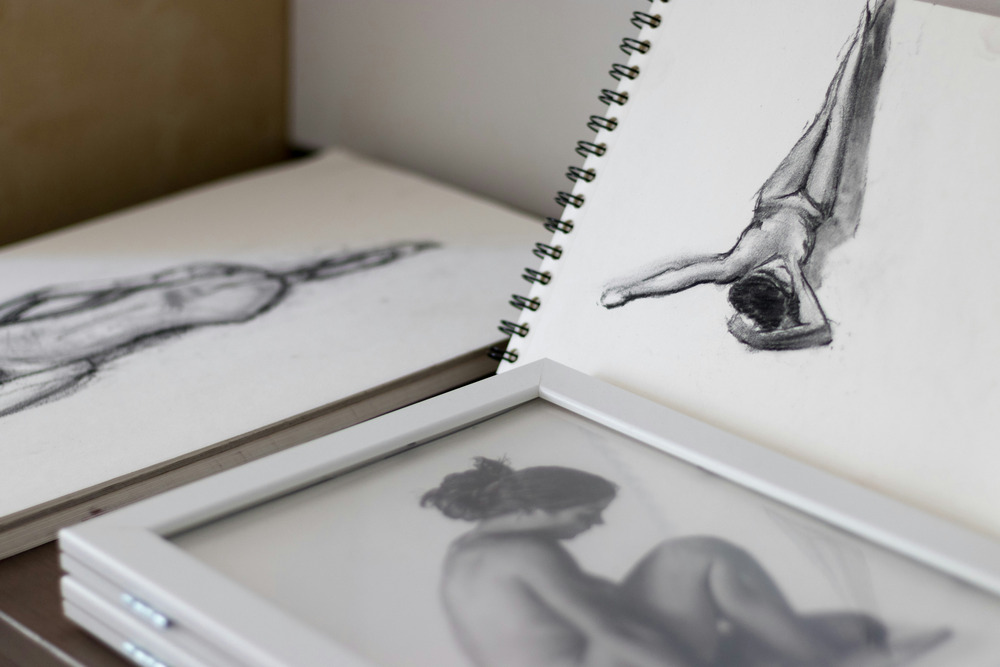interviews
Etaf Rum on the Role of Palestinian Artists in Resistance
The author of "Evil Eye" isn't afraid of being cancelled
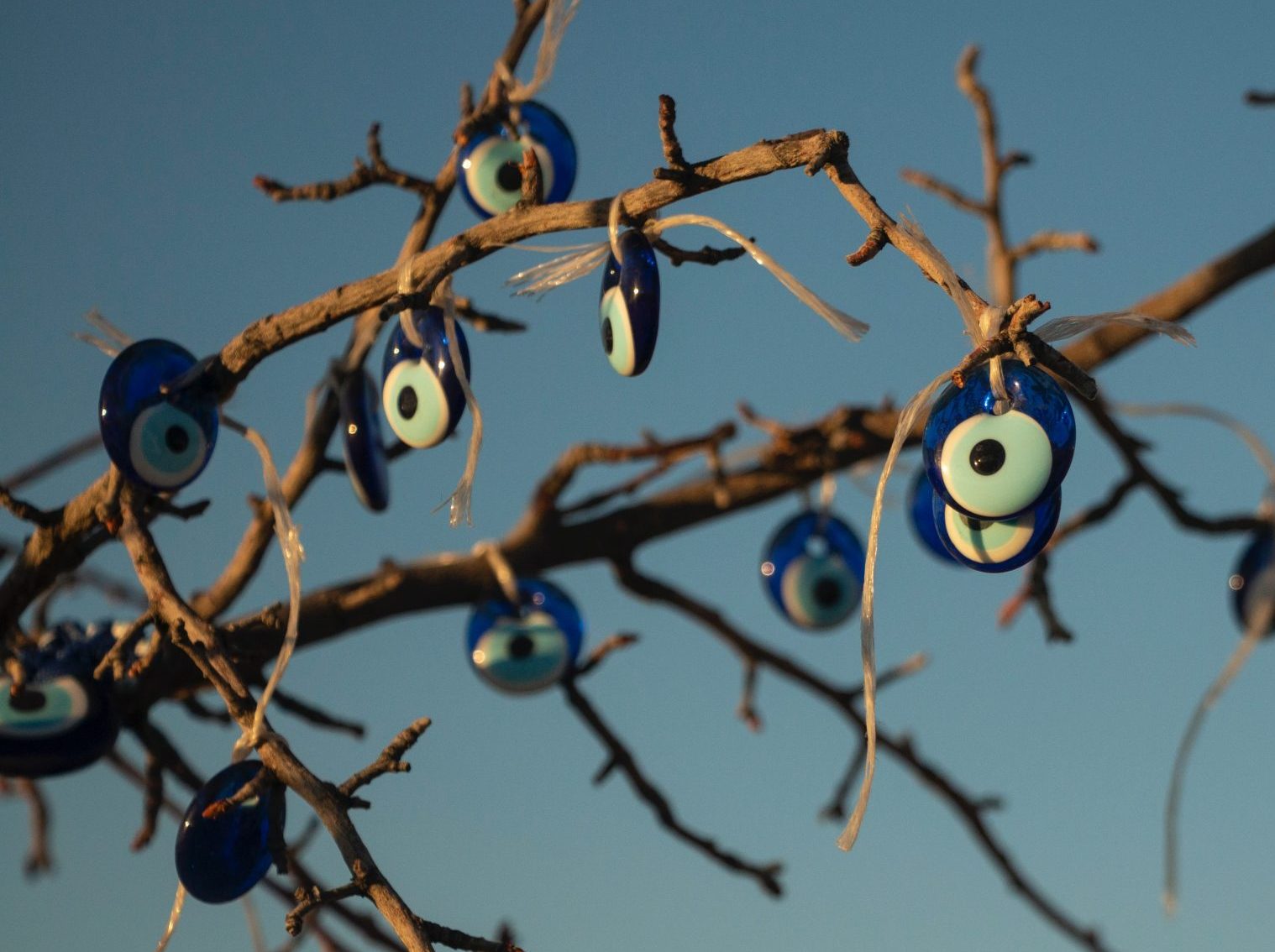
Etaf Rum’s Evil Eye is a captivating, heart wrenching novel about navigating intergenerational trauma, and finding your identity in a culture where women are not perceived beyond the roles they perform in service of others.
Yara, a Palestinian American young woman, spends her days stretching herself thin as she takes care of her two daughters, fulfills her responsibilities as a graphic designer and art instructor at the local college, and cooks elaborate dinners for her workaholic husband. It doesn’t help when traumatic childhood memories creep up on her unexpectedly during the day, making her relive her tumultuous relationship with her mother, the abuse her father inflicted on her mother, her grandmother’s painful stories of living through the Nakba—the start of the decades-long, ongoing Israeli occupation of Palestine. Yara knows she’s had it much better than her mother, her grandmother and yet, she’s unhappy. She can’t help but think that her mother was right: she’s cursed. Yara’s feelings are reinforced when a spat with a racist coworker gets her fired, though not before she befriends Silas, the culinary teacher at the college. Time off from work to paint, to journal, becomes an unexpected opportunity for healing and her growing friendship with Silas too offers support, ultimately leading Yara to arrive at a crossroads: how can she fight for the life she wants as she partakes in a community where women are not allowed to have a voice?
Etaf Rum is the New York Times best-selling author of A Woman Is No Man. Born and raised in Brooklyn by Palestinian immigrants, Etaf tells me that she creates and shares her work to bring hope to people’s lives, to connect with others through language. It’s no surprise that her latest novel is a love letter to the Palestinian community who have been fighting for their rights for over seven decades. Etaf and I spoke over Zoom about the Palestinian artists’ role in resistance and challenging the erasure of Palestinians, how we can hold space for our ancestors’ trauma while breaking the cycle, the flaws within Western empowerment ideals for women, and much more.
Bareerah Ghani: A poignant through line of the novel is how women are often defined by the roles they perform. We see Yara feeling burnt out, trying to “make something of herself” while her husband and in-laws tell her that she should feel fulfilled by being a wife and a mother. How do you contend with this idea, often prevalent in Eastern cultures where women aren’t seen as individuals with personal aspirations, an identity of their own outside of the family unit?
Etaf Rum: Challenging the prevalent notion in Eastern cultures, where women are often perceived primarily as family-oriented individuals, involves fostering a shift in societal perspectives. Both of my novels are rooted in this transformation, emphasizing the celebration of women’s autonomy, particularly within the Palestinian American context. I wanted to explore the ways in which women yearn to be seen and validated beyond their roles within the family unit, and how it’s considerably more challenging for those grappling with intergenerational trauma to navigate how to speak up and articulate their desires.
We see this internal struggle with Yara, with her family’s refugee status in the occupied West Bank and the enduring trauma resulting from the Israeli occupation of Palestine in 1948, intensifying the challenges she faces. In Yara’s perspective, her desires seem almost self indulgent, especially when considering that, compared to her mother and grandmother, who grew up in poverty and under occupation, she already enjoys a relatively fulfilled and liberated life. My intention was to spotlight women like Yara, who grapple not only with the overarching constraints of patriarchy but also contend with the unique lens of trauma and occupation, which amplifies their oppression. This intricate interplay further complicates their quest for validation, both within American society and their own cultural context.
BG: When Yara realizes she’s been pursuing a job only because she thinks she should want a career, it got me thinking about Western society, where women are seen as individuals but there’s this idea that a precursor to being somebody, having an identity is for women to have a career. I would love for you to share your thoughts on the seemingly empowering Western ideals for women, perhaps in connection with your experience with motherhood in the U.S. and its intersection with identity?
ER: Absolutely. In Western societies, women are indeed seen as individuals, but there’s a pervasive notion that a perquisite for a woman to establish herself and claim her identity is by having a career and being independent. It’s a paradigm that can inadvertently deprive women of their roles as mothers and caretakers. In essence, it introduces a different form of patriarchal thinking, where a woman’s self-worth becomes intrinsically tied to her financial contributions or her accomplishments. For Yara, the conflicts are so varied—initially, she’s conditioned to believe that her mother’s choice to stay at home was a form of oppression, and to succeed in America, she should pursue empowerment, education, and a career. But as the narrative unfolds, Yara begins to realize that even in the Western world, she’s subjected to another form of oppression. The Western perspective often perceives Eastern mentalities, which encourage women to embrace their femininity and motherhood, as more oppressive. But in reality, these high standards imposed on women in Western societies often lead to their physical and psychological oppression, making them believe that they must leave their homes to find fulfillment, which may not be truly fulfilling.
For me, this theme resonates on a personal level as a Palestinian American woman navigating my identity in the United States while also honoring my ancestral heritage. I’m deeply interested in addressing what I see as a stark reality—Western ideals are, in many ways, just as toxic, if not more so, then those in Eastern cultures. The difference lies in the illusion that we are empowered because we are independent, when in reality our agency over our lives can be limited, and we often find ourselves conforming to a system that may not truly serve our best interests.
BG: Absolutely. In the West, motherhood is not really an achievement by itself. One other thing that struck me about what you just said is how you’re trying to find your identity while also honoring the legacy of your ancestors. At many points we see Yara berate herself for wanting more from her life when she has it so much better than her mother did, than her grandparents who were driven out of their homes because of the Israeli occupation of Palestine. How do you think we can hold space for our ancestors’ suffering, honor their sacrifices, especially of the women who came before us, without diminishing our hardships?
ER: In minority and marginalized communities, especially among immigrants, the first step involves recognizing that our ancestors endured their own traumas. It’s crucial to validate these experiences without passing the burden of recycling that trauma onto the next generation. Understanding the reasons behind our parents’ desires and worldview, shaped by their own experiences and the limitations of their past, helps empower us to make informed decisions about our future. We’re preparing our children for an uncertain world, and acknowledging the boundaries imposed by our own trauma and upbringing can help us honor the past while embracing change with openness, truth, and awareness.
BG: I love that, but you know, so much of awareness and so much of self healing and taking responsibility for that kind of healing, cannot be done in isolation. We see Yara really does break the cycle of intergenerational trauma through art and writing, and it’s beautiful. But there’s also Silas offering incredible support, and that really shows us that having a community matters. How do you think the conversation on healing, mental health and seeking professional help can be introduced and sustained in cultures resistant to such ideas?
Encouraging women to break free from their traditional roles also necessitates a corresponding call for men to do the same.
ER: I think art serves as an initial gateway to discussing healing, mental health, and seeking professional help, especially in cultures resistant to these delicate conversations. It’s often more approachable to initiate these discussions indirectly, through literature or television, mediums which provide a much more effective bridge for dialogue, especially for communities who are traditionally closed off to these topics. Breaking the cycle often involves individuals finding their own voices and then extending those conversations and fostering awareness in alternate, more receptive spaces.
BG: I find that the novel offers a powerful critique of domestic dynamics within Arab culture. A lot of those resonated with me because I come from a similar culture where women like Yara bend over backwards to please their mother in-law, only to be made to feel like you’re not doing anything monumental, you’re doing what’s expected of you. How do you think such cultural notion of relegating women in their own homes can be navigated, challenged and to what extent, changed?
ER: I think the key is to view both women and men as individuals not confined to predefined roles. Conventional norms often prescribe men as providers and women as nurturers, imposing rigid expectations on both genders. Encouraging women to break free from their traditional roles also necessitates a corresponding call for men to do the same. Families and households need to collectively decide how to honor both their masculine and feminine aspects without being restricted by them. We are dynamic beings meant to lead meaningful lives that evolve with each life stage. As long as we’re adhering to our truths, aspiring to high ideals, and supporting one another, we can dismantle the confines of societal boxes. And I think we’re moving towards that. The challenge arises when patriarchal societal structures pressure women and men to show up in certain ways. Modern society tends to push women towards hyper independence, but these expectations don’t necessarily align with our innate, creative urges. Men, too, often find themselves living outside of their true potential. We’re all influenced by a system that exploits our efforts, a way of life that does not serve our genuine essence or benefit us.
BG: The novel offers a heartbreaking portrait of the erasure Palestinians have been facing since decades now. I was moved when Yara’s Teta says, “I want our identity…to live on. It’s already enough that we are homeless and nameless…As long as we continue to share our stories, our history will be remembered.” Given Israel’s war crimes in Gaza are only escalating by the day, and countries like the U.S. support the genocide, refusing to acknowledge the blatant disregard for Palestinian lives, how do you perceive the role of Palestinian activists, artists and writers like yourself in challenging this erasure, and colonization of your people and homeland?
It’s crucial for us to stand up and speak our truth, regardless of the fear of being silenced.
ER: It’s crucial for us to stand up and speak our truth, regardless of the fear of being silenced. Palestinian artists, in particular, carry the burden of addressing the traumatic history of Palestine and raising awareness while simultaneously dismantling Western stereotypes and misrepresentations. Especially because there is a profound lack of Palestinian representation in literature, media, politics, and education, limiting our voices. And so those of us doing this work have a duty to use our platforms, to speak up, to tell our stories, now more than ever. I feel like it’s my responsibility to use my work to spread awareness about the Palestinian occupation and Israel’s oppression of Palestinians for over seven decades—to use my voice to fight against the evident hypocrisy in the way media covers what’s happening in Palestine. While any loss of life is tragic, it’s important to acknowledge that the suffering of Palestinian children and civilians, who’ve been killed by Israel military over the past 75 years, often goes unreported. As Palestinian artists, our duty is to fearlessly shed light on these injustices.
Recently, I faced criticism for my stance on social media in solidarity with Palestine. Numerous people tagged Jenna Bush, suggesting that I should be canceled for “supporting terrorists.” One reader even made a video of herself throwing my novel, Evil Eye, in the trash.
These actions only reaffirmed a sentiment I have carried with me throughout my life as a Palestinian in this country: that Palestinian lives don’t matter, that we are not worthy of basic human rights, that we are not seen as human, as people. We Palestinians are already stripped of our identity and the right to assert our human rights, so I won’t be silenced or cowed by baseless intimidations or attempts erase us. I’m not afraid of being cancelled; as a Palestinian, I’ve been cancelled since the day I was born. What more can they do to demoralize me that hasn’t already been done? We live in a country that has labeled an entire group of people as “terrorists,” a country that allocates billions of tax dollars to fund the killing of innocent people for decades, and we must break free from the cycle of blind trust in the mainstream media and do our own research. That’s why reading is so fundamental. Our collective responsibility extends beyond national identity; it’s a human rights issue. Just as we support human rights’ movements such as Black Lives Matter and LGBTQ rights, we must also stand up for Palestine. So regardless of the challenges I may face, it’s my commitment to raise awareness about the prolonged suffering, oppression, and ethnic cleansing of Palestinians.
BG: It’s heartbreaking, truly. Given how rampant this invalidation of the Palestinian struggle is, do you see any hope of Palestinian artists like yourself being heard? How do you really contend with the fact that so much of the world is not listening?
ER: It’s incredibly hard, demoralizing, and sad. But what keeps me going is hope, faith, and an unwavering belief in what’s right. When we defend our right to exist and our right to prevent the loss of innocent lives, we do so for the sake of the millions of powerless men, women, and children living in Palestine. We fight for their right to a life of dignity. There’s a part of us that hopes the world will awaken to this grave injustice, that one day their suffering will end. I have faith that the Palestinian people will achieve justice, even when it seems improbable. As Palestinian artists and advocates, we are compelled to resist, to raise our voices because we believe in the cause. It’s what’s driving us. Our determination reflects the undeniable truth of the Palestinian struggle, even when the odds of global change appear slim. Without this belief and without speaking out, our existence loses meaning.
If we lose faith in our mission to support freedom, to raise our voices against oppression, and we succumb to the fear of being silenced or canceled, then what’s the point of our existence on this earth? What purpose do we serve?
Maya Angelou says it best: “The truth is, no one of us can be free until everybody is free.”





